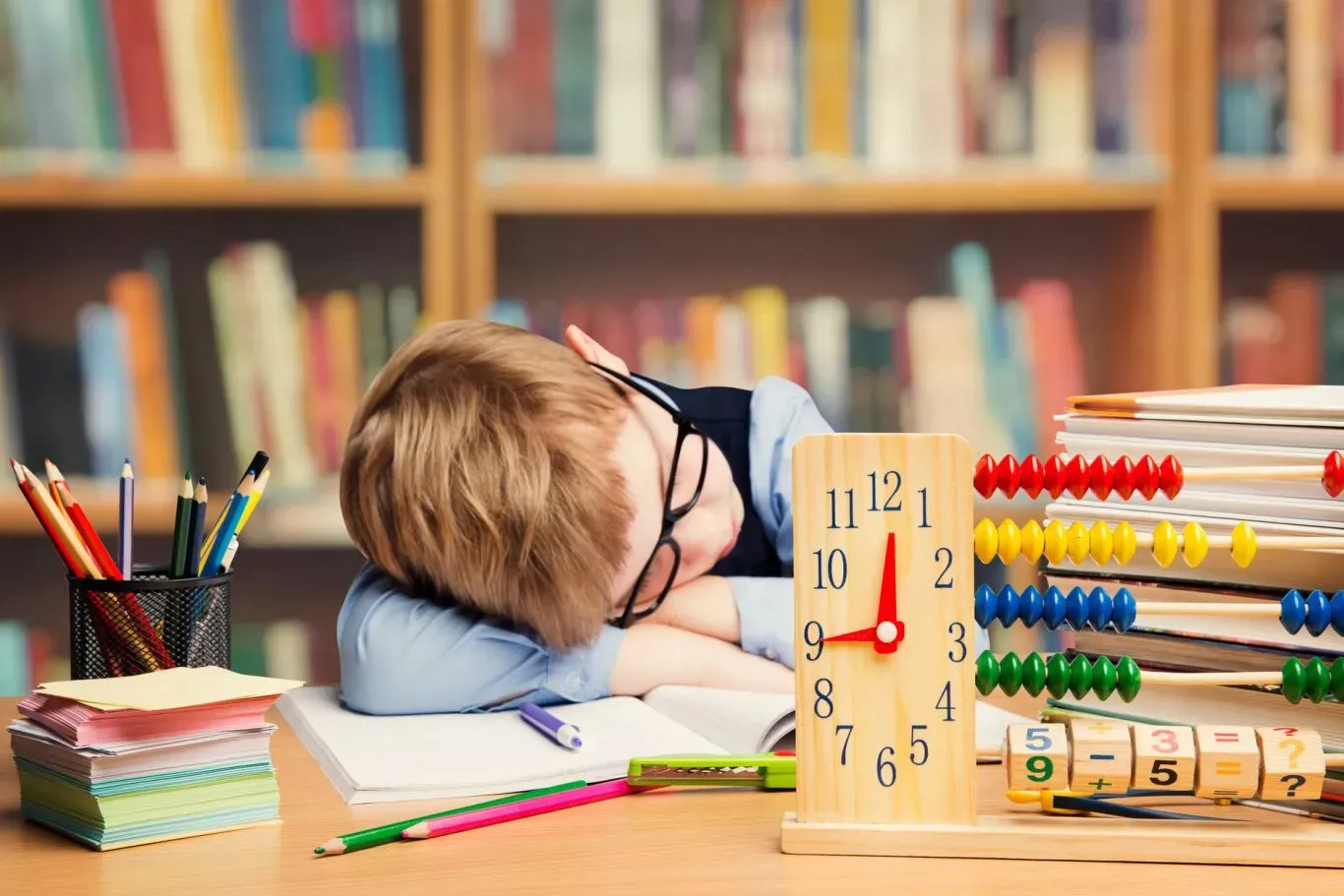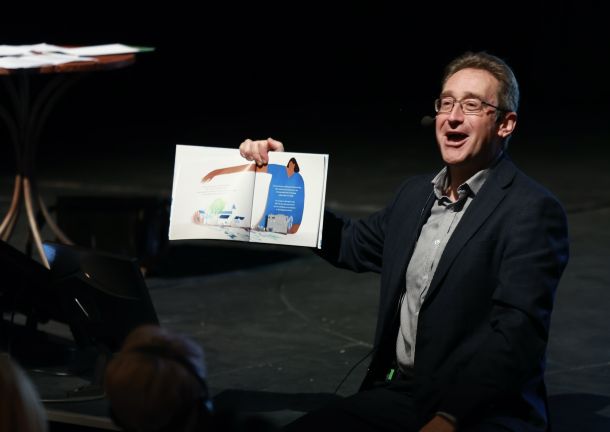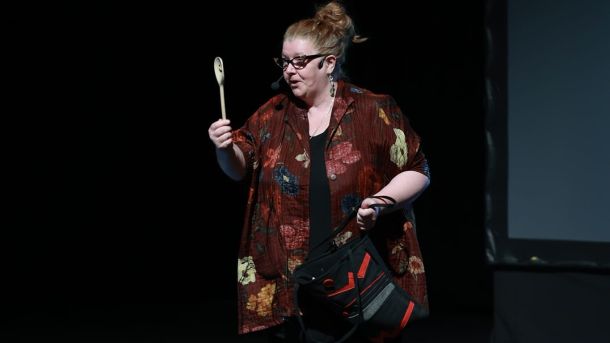
The impact of sleep on education and school performance
The impact of sleep on education is a major and recently resea. Lack of sleep could have very serious consequences for memory, well-being and emotions.
- How important is the art of sleeping, this critical life skill, and how do we help our children?
- TThere is a direct link between sleep duration in pre-schoolers and the ability to concentrate at school
- The impact of sleep on education. Four major consequences of sleep deprivation for your children
- How can we manage the impact of sleep on education? The same author proposes 12 methods for healthy sleep:
The impact of sleep on education is a major one and has been researched in recent years by numerous research institutions. Lack of sleep has effects not only on the physical state of children, bringing with it a lowering of the immune system, but also psychological effects related to emotional regulation, well-being, focus and memory, and organisation. It is very important to pay attention to our sleep and rest schedule, but especially to our children who are in the process of development.
How important is the art of sleeping, this critical life skill, and how do we help our children?
Numerous studies have shown that quality sleep for children contributes significantly to the effectiveness of education. Research results have shown that extending sleep duration by delaying school hours has reduced behavioral and psychological problems, school absenteeism, and even alcohol and drug use among adolescents.
There is a direct link between sleep duration in pre-schoolers and the ability to concentrate at school
Lack of sleep is associated with attention deficits, impaired emotional control, and socialization problems throughout childhood, a large 2017 study by a Harvard pediatrician shows.
The study reported in The Harvard Gazette revealed, through the responses of more than 1,000 parents and teachers, significant deficiencies in executive brain functions such as attention, short-term memory, reasoning, and problem-solving skills, as well as behavioral problems. These were visible in 7 year-olds, depending on how many hours of sleep they had at younger ages.
"We found that those children who get insufficient sleep in preschool, as well as in the early school years, have a higher risk of poor neurobehavioral function as early as around age 7," says Elsie Taveras, professor at Harvard Medical School, who coordinated the study.
The impact of sleep on education. Four major consequences of sleep deprivation for your children
Organisation and Focus
In achieving school performance, children need organization and focus, and these are dependent on an effective sleep schedule. Not getting enough sleep affects the way children think. It can temporarily weaken the part of the brain that manages organization, planning, and problem-solving. For example, they may find it harder to prioritize homework and control themselves during tests.
Studies show that when people are sleep deprived, their brainwaves go into sleep-like patterns while awake. This helps explain why exhausted students seem to "detach" from the lesson at those times.
Memory
We all know that memory is central to the educational process, but how many people know that it is closely related to sleep? A sleep-deprived brain has a harder time concentrating, so it has a harder time remembering new things. Insufficient sleep can also make it harder to form and remember long-term memories. Tired children may work more slowly because they find it hard to remember what they have just heard or read. If they learn new material, they may forget it by the next day.
Emotions
When they don't get their hours of sleep, children have less control over their own emotions. Children can become moody when they are tired. They may have less self-control over their emotions when they haven't had enough sleep compared to the rest of the time. Feelings of frustration can make it easier for children to lose their temper when they have difficulty with homework or educational activities.
Physical health and well-being
Lack of quality sleep influences children's physical health and well-being. Several researchers from the University of Surrey told the BBC that areas such as the immune system and how the body responds to stress are affected by a lack of quality sleep. Sleep deprivation can also lead to lowered immunity, disturbances in maintaining a constant temperature, weight gain (sleep-deprived people cannot control their appetite and consume sweets in excess to provide the brain with an immediate source of energy).
What factors inhibit sleep quality?
The use of LED devices during the night affects our natural sleep rhythms, sleep quality, and the level of alertness we feel during the day. Artificial light in the evening significantly decreases the likelihood that you will be able to fall asleep at a reasonable hour. Also, using devices two hours before bedtime can contribute to decreased alertness the next day.
In his book Why we sleep, Matthew Walker, points out that electronic light is ranked in the list of the five key factors responsible for altering sleep duration and especially sleep quality. Another very important point related to this topic draws attention to blue LED light, which has a double harmful impact on night-time sleep, especially when used two hours before bedtime.
All these conclusions are the result of scientific studies, and the author presents one of them in brief: several healthy adults lived for two weeks in a laboratory environment. This period was divided into two and one part of the adults before bedtime read from an e-book on an iPad, and the other part of the adults focused on reading a paper book. The findings showed that reading from the iPad delayed the onset of sleep by up to 3 hours.
It is important to help children have a healthy relationship with technology. Find out how you can do this 👉 https://www.kinderpedia.co/children-techology.html?format=html
How can we manage the impact of sleep on education? The same author proposes 12 methods for healthy sleep:
- Create a rigorous sleep schedule for school and pre-school children and the rest of the family. Set a bedtime reminder. We often do this to wake up, but not to go to sleep.
- Sport is a beneficial activity for our health, but not very late in the day, no later than two to three hours before bedtime.
- Let's avoid caffeine because coffee, cola, certain teas, and sweets contain these stimulants and their effects can take up to 8 hours to wear off completely.
- Avoid anything containing alcohol before sleep as it can give the person a tendency to wake up during the night more than once.
- Heavy meals are always a pleasure, but eaten at late hours, they can negatively influence our rest.
- Avoid, as far as possible, any medication that can affect or delay sleep. This also includes any herbal remedies for coughs, colds, or allergies as some of their ingredients may interact with sleep patterns.
- An afternoon nap can make up for a lack of sleep, but those naps after 3 pm make it more difficult to fall asleep at night.
- Before sleep, do a pleasant and relaxing activity, such as reading or listening to a soothing song.
- A warm bath before bedtime is essential, as immediately after this activity, the body temperature can start to drop, which can make you feel drowsy and relaxed.
- The bedroom should be dark and free of gadgets as bright lights and noises from them can distract you from sleep.
- Natural sunlight during the day can promote healthy sleep, so experts recommend exposure to sunlight for at least 30 minutes a day.
- Anxiety generated by an inability to sleep can make it more difficult to fall asleep. So, if 20 minutes have passed since you've been in bed and you can't fall asleep, get up and do something relaxing until you feel sleepy again. The anxiety generated by not being able to sleep will make it even harder to fall asleep.
In conclusion, rest - an essential pillar in mental and physical development - is influenced by many factors, and in turn, has effects on learning and personal lifestyle. The impact of sleep on children's education is major, as it also influences emotional balance and cognitive abilities.
How does Kinderpedia support family engagement in a child's education?

Kinderpedia
The complete communication and management solution for schools and childcare centres.
Simplifies teachers' work and brings parents closer to their children's school progress.
Recommended articles
Want to improve your center quality? Kinderpedia is here to help! Not only do we provide thousands of informational content pieces like blog posts, podcasts, webinars and more, we are also makers of the #1 Rated and Reviewed Childcare Software.







